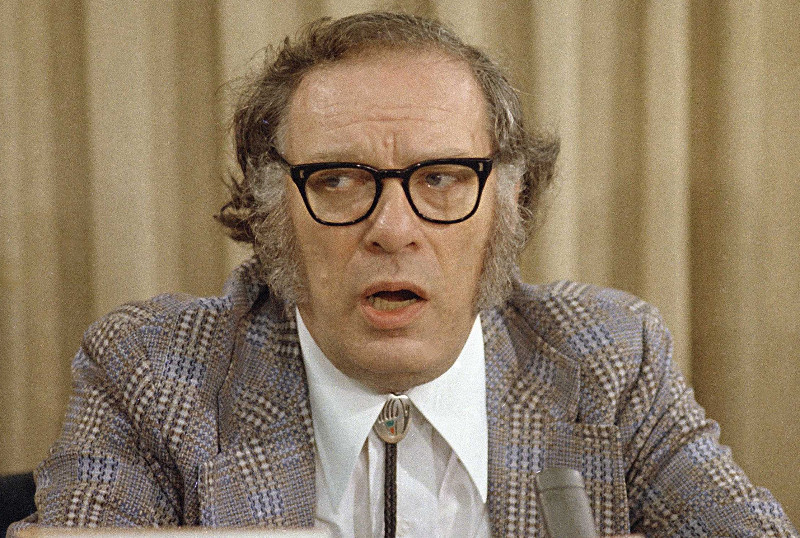
It is challenging to summarize the life, works, and influence of a writer like Isaac Asimov in just a few sentences—mostly he is known for his works of science fiction, a genre which he is credited for elevating by incorporating elements of history, sociology, mathematics, and science into his work. During his prolific career as an author, Asimov wrote more than 400 books and is considered to be one of the greatest science fiction writers of the 20th century.
Over the course of his career, Asimov won many awards, including several Hugo and Nebula Awards, as well as numerous accolades from science institutions. During his life, Asimov was a long-time member and vice president of Mensa International, while he took more joy in being president of the American Humanist Association. Following his passing, his legacy remains in and out of libraries around the world. The asteroid 5020 Asimov, a crater on the planet Mars, a Brooklyn elementary school, and a literary award, are all named in his honor.
A prodigy, Asimov graduated from high school at 15 and soon began a complicated relationship with Columbia University that would ultimately result in him obtaining three degrees from the school. Due to anti-Semitism, Asimov was initially rejected by Columbia College in Manhattan and directed to Seth Low Junior College, a satellite school in Brooklyn. When that school closed in 1936, Asimov was allowed to finish his Bachelor of Science degree in chemistry at what would later be considered the Columbia University School of General Studies. Following rejections by medical schools, Asimov applied to the graduate program in chemistry at Columbia in 1939; where once again he was rejected, only to be accepted later by Columbia on a probationary basis. In 1941, he received his Master of Arts degree in chemistry. Following the Pearl Harbor attack, he worked at the Naval Air Experimental Station in Philadelphia from 1942 to 1945, and then returned to Columbia where he graduated with a PhD in chemistry in 1948.
Since graduating, Asimov was known to occasionally visit his alma mater. In 1978, for instance, he was back on campus to celebrate a former Columbia chemistry professor, Charles Dawson, who was receiving the prestigious Mark Van Doren Award. Asimov spoke to a crowd of nearly three hundred faculty members and students on what his former professor had meant to him. Five years later, the great writer had another occasion to visit Columbia: this time to receive an honorary degree during Columbia University's 229th commencement. Presiding over the ceremonies, Columbia's president, Michael Sovern, said this of the legendary writer, "writing brilliantly about the future, you have shown a profound understanding of the past." Later, in 1988, Asimov was also the featured speaker at the Graduate School of Arts and Sciences Dean's Day and he posthumously remains one of Columbia's most celebrated graduates.
